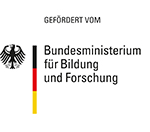research
|
Intervention Research Head: Prof. Dr. Silvia Schneider |
|
|
| Study participation |
Principal Investigator and Team
Prof. Dr. Silvia Schneider
Prof. Dr. Sabine Seehagen
Rabea Derhardt
M. Sc.
Melanie Wieschmann M. Sc.
Collaborator
Freie Universität Berlin, Prof. Dr. Babette Renneberg (coordination of ProChild & sub-project 1)
Universität Bremen, Prof. Dr. Nina Heinrichs (sub-project 3)
Ruhr-Universität Bochum, Prof. Dr. Robert Kumsta (sub-project 4)
Freie Universität Berlin, Prof. Dr. Ulrike Urban-Stahl (sub-project 5)
Funding
Bundesministerium für Bildung
und Forschung (Förderkennzeichen 01KR1805B)
Duration
Since June 2019
Link
Wenn Sie an der Studie teilnehmen möchten, dann klicken Sie bitte >>hier<<
Description
Being exposed to violence and maltreatment as a child is a severe and well-documented risk factor for abnormal development. Children of mothers with borderline personality disorder (BPD) are at a particularly high risk of experiencing violence and maltreatment. There is compelling evidence that exposure to environmental adversity during childhood is associated with negative outcomes in adulthood. While the adverse impact of maternal BPD and the associated violent parenting practices on their children are known, the disorder-specific impact of maternal BPD on their children and the potential beneficial effects of a disorder-specific parent training on the children have not yet been investigated in detail.
Therefore, the overall goal of the ProChild study is to improve prevention of maltreatment and to promote mental health in children of mothers with borderline personality disorder (BPD) by strengthening mothers’ parenting skills.
The first aim of the present sub-project 2 is to examine the emotion regulation strategies and mental health status of children of mothers with BPD compared to a) children of mothers with anxiety disorders or depression and b) to children of mothers with no mental disorder. Secondly, the impact of a disorder-specific parenting program on the children’s emotion regulation and mental health is studied. Additionally, potential mediators and moderators will be considered. Children’s mental health status will be assessed with a structured Interview (Baby-DIPS and sub-sections of the Kinder-DIPS). Children’s temperament will be assessed via maternal report using questionnaires. Emotion regulation of the children will be explored using age-appropriate waiting tasks. All parameters are measured before and after the parenting training.
A total of 324 children between 6 months to 6 years will be recruited, of which 178 account for children of mothers with BPD, 66 for children of mothers with depressive or anxiety disorders, and 80 for children of healthy mothers. Patients will be recruited by contacting individual therapists who specialize in BPD treatment. We assume that 10% will not meet the inclusion criteria. Furthermore, we expect a dropout rate of 25%. Consequently, final analysis will be conducted with 150 children of mothers with BPD and 70 control children.


